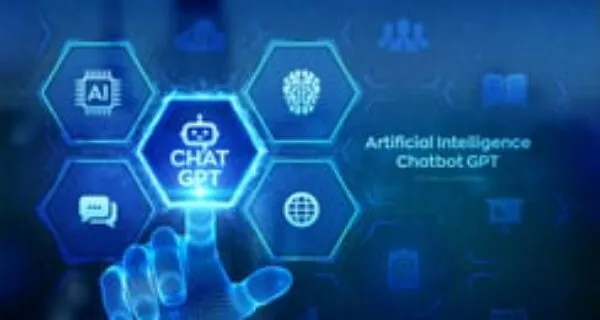ChatGPT, Artificial Intelligence and the Law

In the relatively short time since OpenAI’s ChatGPT was introduced in November 2022, there have been many intriguing and unforeseen consequences related to the technology. ChatGPT, which stands for “chat generative pre-trained transformer,” is an AI-driven application capable of providing detailed information on a vast array of topics in response to a given query. ChatGPT can solve college-level math problems, write a screenplay, and even give travel advice. Predictably, it has also been linked to darker applications; in the hands of cybercriminals, the technology can be used to generate deceptively persuasive phishing emails and build code designed to hack corporate data.
News about ChatGPT has fueled not only its popularity, but also serious concerns surrounding its use. When stories circulated about the technology’s successful passing of both law school exams and a U.S. medical licensing exam, it became hard to ignore the obvious ethical, and likely legal, issues linked to ChatGPT. Certainly, there is an obligation to acknowledge the technology as a source when it used as part of a finished work, whether a homework assignment, patent filing, song or article. (Full disclosure, no ChatGPT technology was used for this article).
It remains to be seen how the technology will be adapted for business applications, which will most certainly trigger all sorts of compliance issues. Imagine the inevitable murkiness when ChatGPT meets the EU’s General Data Protection Regulation (GDPR), or any jurisdictional privacy legislation for that matter. Likewise, employers will likely face many challenges relating to employee use of the technology, whether for HR/personnel issues, creating reports or other seemingly safe uses.
As you would expect, lawsuits have already begun to spring up. In January 2023, Getty Images (a stock photo enterprise) sued Stability AI, claiming infringement of intellectual property rights. The same company was also sued by a group of artists in a class action matter, with the plaintiffs seeking $1B in damages on the basis that the defendant’s AI technology had been trained to recreate images reminiscent (but not exact copies) of prior art by scraping the internet of more than five billion images.
Since access to ChatGPT is free, it is sure to be piloted by many users for different purposes. Regardless of what those may be, users should proceed with caution, bearing in mind the issues raised above, as well as the inherent limitations of this technology. After all, ChatGPT has only been trained on data available through 2021, which means more recent sources will not be indexed when formulating a response to a specific query. Fact checking, as with all things sourced on the internet, is always recommended.
Outside GC will be monitoring this evolving technology and the legal landscape associated with its use cases. In the meantime, we encourage you to try it out to become more familiar with its scope and power. For instance, you might give it instructions to write a three paragraph essay on a topic of interest; and then, give it the same instructions with a request to deliver the response in the style of Dr. Seuss or a rapper. Move over Siri, there’s a new player in town!
Brad Auerbach is a Partner with our California-based team, bringing over three decades of senior in-house counsel experience (at Disney, Philips, Qualcomm and HP) in the media, entertainment and technology industries. Brad has been involved in structuring many groundbreaking deals with a diverse range of rights holders, including NFL, NBA, NHL, HBO, MTV, ESPN, Sesame Workshop, Nickelodeon, Live Nation, Marvel Entertainment, International Olympic Committee, English Premier League, Screen Actors Guild, every significant Hollywood studio, each of the major record labels, many major book and news publishers, several world class photographers and Getty Images, among numerous others.
Brad can be reached at [email protected].
This publication should not be construed as legal advice or a legal opinion on any specific facts or circumstances not an offer to represent you. It is not intended to create, and receipt does not constitute, an attorney-client relationship. The contents are intended for general informational purposes only, and you are urged to consult your attorney concerning any particular situation and any specific legal questions you may have. Pursuant to applicable rules of professional conduct, portions of this publication may constitute Attorney Advertising.